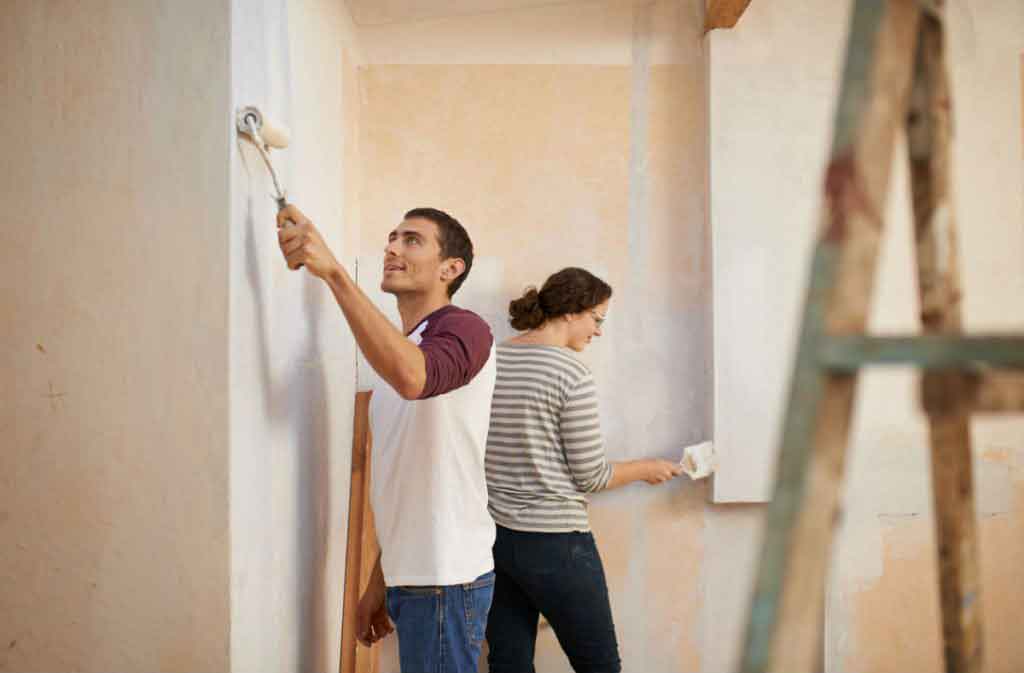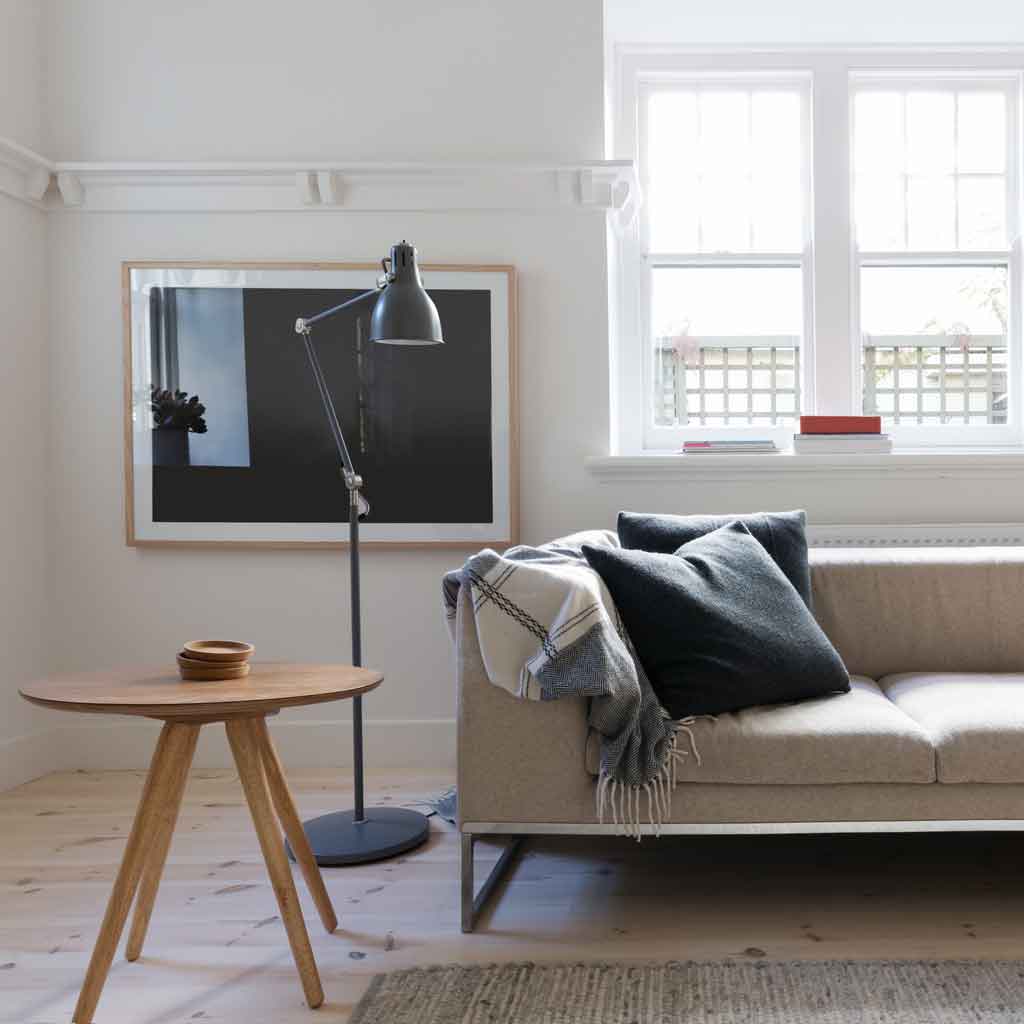House flipping in Australia: how to ensure you make money renovating
Samantha is a Sydney-based real estate and home improvement writer. She is currently Head of Marketing at OpenAgent.
Learn more about our editorial guidelines.
House flipping has become a popular venture in Australia, but turning a profit isn’t always straightforward.
In this article, we’ll guide you through essential strategies and insights to maximize your returns on renovating properties. From understanding market trends to managing renovation costs, we’ll cover the key steps to ensure your house flipping efforts are both successful and profitable.
What is house flipping?
Flipping is the process of selling and buying a house (or any property) with the intention of renovating it and selling it for a profit. It's typically done over a short period of time, months as opposed to years. This is a totally different mentality and approach to ‘conventional’ property investment, where you might hold onto a property for years, even decades.
Make no mistake, despite what the renovation reality shows may have you believe, flipping and turning a profit is not easy money. There are numerous hurdles and pitfalls on the flipping journey, as many aspiring real estate moguls have found to their cost. You can get carried away and pay too much for a property or blow your reno budget on gold tap ware if you're not careful.
It's not as simple as buy, renovate, and sell. There's plenty going on inbetween. At the end of the day if your sale price doesn’t exceed the cost of buying, holding and renovating the property your flip will have flopped.
So how do you ensure your flip is not a flop?

The key to successful flipping and renovating in Australia before you sell
As any seasoned house flipper knows, the key to a successful flip - and by that we mean making a decent profit - is to have a plan.
Many an aspiring flipper has rushed into it without researching the market, working out a proper budget, let alone a timeline for their project. You also need to move fast - time is money, no more so when you're holding a property and paying interest on your loan.
They key to successful flipping - and by that we mean making a decent profit - is to have a plan
You also need to be aware of what is happening in the wider market, at a local and national level. You could get your fingers burnt if you're trying to flip a property in a bear market, where supply has outstripped demand.
Budgeting for a house flip: do your sums
Not having a proper budget is one of the most common reasons why flippers fail. Others have a budget but don’t stick to it. Either way your renovation budget needs to detail everything down to that last tube of silicone, preferably in a spreadsheet.
And you need to factor everything into it, including your capital gains tax obligations, real estate agents fees and interest on your home loan. Many vendors forget to factor in a whole host of hidden costs which all add up and impact on your profit margin.
You need to factor everything into your budget, like capital gains tax, real estate agents fees and interest on your home loan
You can then start to research and identify a location where to purchase a suitable property.
Learn more: What is the cost of selling a house?
Researching the local market and getting the right fixer-upper
To be a successful flipper, you need to have good feel of the market you're buying into. At the end of the day you need to be able to pick the right property, in the right suburb, at the right price - and you need to know a good deal when you see one—you need to buy property with an upside, because it's when you purchase with potential that you make your money. They key rule is to buy a great property at below market rate. This increases your chances of realising a profit when it comes time to sell.
Getting that sort of local knowledge takes time and a ton of research. If you’re planning on buying into an area you're not familiar with, this is even more challenging. There are lots of online tools to help you undertake this vital groundwork, but making contact with local real estate agents should be a priority.
Local agents will have intimate knowledge of the local market, with insights on sales data and properties that are the best candidates for flipping. It's also a good way to find out what current or future residents of the area are looking for in a home. If it’s a suburb inhabited by young families, they are likely to appreciate being near schools and amenities like childcare centres and supermarkets.
In terms of a property’s features they are likely to appreciate a recent kitchen renovation, renovated bathroom and generous storage. A real estate agent can also help you estimate a fair final price when it comes time to sell.To be a successful flipper, you need to have an intimate knowledge of the market you're buying into.
What to renovate to maximise value
Before you make a list of projects for your renovation take the time to work out who your buyers are and what features they are likely to be looking for in a home. You can then focus on renovations that are going to appeal to them.
If you're serious about maximising the return on your investment look to cosmetic projects, rather than larger, structural renovations or expensive labour intensive features. Some cost effective and sensible projects include:
- A fresh lick of paint, indoors and out
- A focus on a tidy garden and a bit of landscaping
- New flooring
- A general spruce up of your outdoor areas to boost your curb appeal
In terms of rooms or specific projects to concentrate on, buyers are always going to see the value in a renovated kitchen or bathroom.
Maximise the return on your investment by focusing on cosmetic projects, rather than larger, structural renovations
Take the time to work out all your material costs, and shop around for bargains or items on end of line sales. Remember, every penny counts when it comes to flipping. You also need to work out if your project requires any permits, such as planning permission from your local council. Processing these take time and cost, which could have a very direct bearing on your renovation timeline, budget and profit.

Getting the work done by tradies
The most successful flippers - the ones who actually make a decent profit - get their hands dirty. If you're able to DIY some aspects of your reno, like pulling up old carpet - you not only get things done quicker, it also reduces your outlay on contractors.
That is not to say you should avoid getting the pros in. Some jobs - like plumbing, electrical work and major building works - have to be done by a licensed professional. Not using a licensed contractor could result in poor workmanship and/or the work not conforming to building regulations.
Besides having the right qualifications, experience and insurance cover, a registered professional will also do a more efficient job. Make sure the contractors you hire are reliable and can get the job done on time and at the right price.
Make sure the contractors you hire are reliable and can get the job done on time and at the right price
Create a renovation timeline
Your renovation needs to proceed according to a clear timeline and schedule. Each trade or contractor needs to know when they are required and what they are doing. A shared spreadsheet can help make sure everyone is across this.
Imagine a bathroom renovation, where you will need to coordinate a tiler, plumber, waterproofer, cabinetmaker and sparkie. They all need to do their element If they don’t all work to plan you will face delays which eat into your profit margin.
Your renovation needs to proceed according to a clear timeline and schedule

Getting a home ready for market?
Whether you’re selling in 30, 60 or 90 days, we show you how to quickly add value to maximise your sale
Get your free renovation guide
Listing your property for sale
Once your renovation is done and dusted you need to get is listed and sold as fast as possible. Remember, you're paying interest on your loan every second the property is in your name. This is when an experienced local real estate agent can be invaluable. Why?
Because a good agent is worth their weight in gold. They can help you get the best possible sale price for your property in the shortest timeframe and act as a guide through the often tricky legal processes of selling property.
A good local agent can help you get the best sale price for your property in the shortest possible timeframe

The pros of using an experienced local real estate agent
Selling is a time consuming process, and as tempting as it's to try do it all yourself, you're much more likely to get a better result with an agent who knows the local market well. If you're flipping a house and selling for profit, then your biggest intention is to make money while doing it. In this case, it makes sense to appoint the very best agent for your property. By choosing a great local agent, they will be able to:
- Give you the most realistic appraisal based on their knowledge of the local market
- Advise on the best sale method for the area (private treaty or auction) which could help you realise a higher final sale price
- Help market your property using the most effective method for the local market
- Use their database and network of potential buyers to maximise the exposure your property gets
- Take care of time consuming marketing activities like open house inspections
- Field enquiries from prospective buyers
- Negotiate with buyers on your behalf so you get the best possible price for your property
- Handle the ‘Contract of Sale’
Tax and your investment property
You're liable to pay Capital Gains Tax (CGT) on any profit you make on an investment. This includes the sale of an investment property, unless you're living in it and it's your primary place of residence. Be sure to know your CGT obligations in advance so you don’t get a nasty surprise.
Cost of renovations
How much does a kitchen renovation cost?
A typical kitchen renovation can cost you anywhere from $15,000 to $40,000, with the median overall spend sitting at $20,000.
With this budget range, you can opt for engineered stone bench tops, polyurethane cabinetry, and a glass splashback. Mid-range flooring choices might include hardwood timber or large-format tiles, and you’ll have access to appliances from well-known brands offering additional features and a variety of finishes.
How much does a bathroom renovation cost?
A standard bathroom renovation costs between $15,000 and $35,000. With this said, it really depends on the size of your bathroom and the extent of renovation.
A budget renovation could cost you anywhere from $8,000 and $15,000, while a premium or luxury renovation will likely cost over $35,000.
Here are some other valuable articles to boost your home's value.



